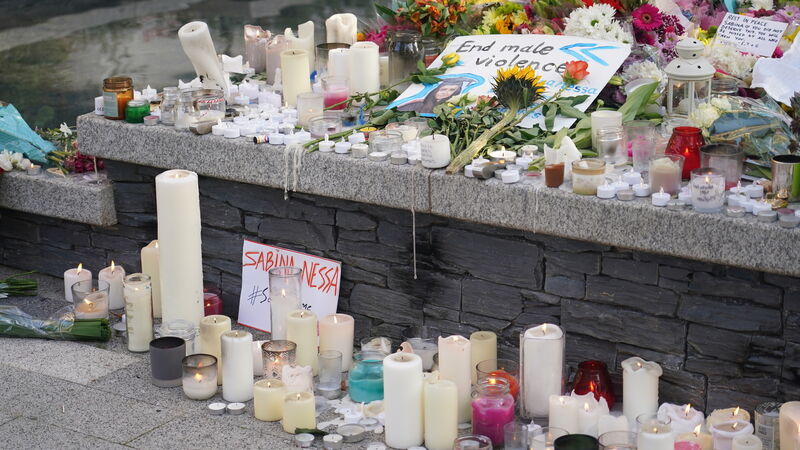Joyce Fegan: Deconstructing a sexist culture is heavy work and we need more than women to do the lifting

Tributes left for 28-year-old school teacher Sabina Nessa at Pegler Square in Kidbrooke, south London.
Try from €1.50 / week
SUBSCRIBE
Tributes left for 28-year-old school teacher Sabina Nessa at Pegler Square in Kidbrooke, south London.
It's the jokes. It’s the banter. It’s turning a blind eye. It’s the cat-calling. And it is the accepted ridicule of anyone who confronts any of the latter: ‘God, you’ve no sense of humour’; ‘You’re so sensitive’; ‘You’re a ‘ball breaker’ ’; ‘You’re such a bra-burner’; ‘What a snowflake’; ‘Can you not take a compliment?’
While these ‘jokes’ are being shared, and those who find them offensive are being rebuked, women and girls are being assaulted, raped, and murdered.
Already a subscriber? Sign in
You have reached your article limit.
Annual €130 €80
Best value
Monthly €12€6 / month
Introductory offers for new customers. Annual billed once for first year. Renews at €130. Monthly initial discount (first 3 months) billed monthly, then €12 a month. Ts&Cs apply.
CONNECT WITH US TODAY
Be the first to know the latest news and updates
Newsletter
Sign up to the best reads of the week from irishexaminer.com selected just for you.

Select your favourite newsletters and get the best of Irish Examiner delivered to your inbox
Monday, February 9, 2026 - 12:00 PM
Monday, February 9, 2026 - 6:00 AM
Monday, February 9, 2026 - 8:00 AM
© Examiner Echo Group Limited